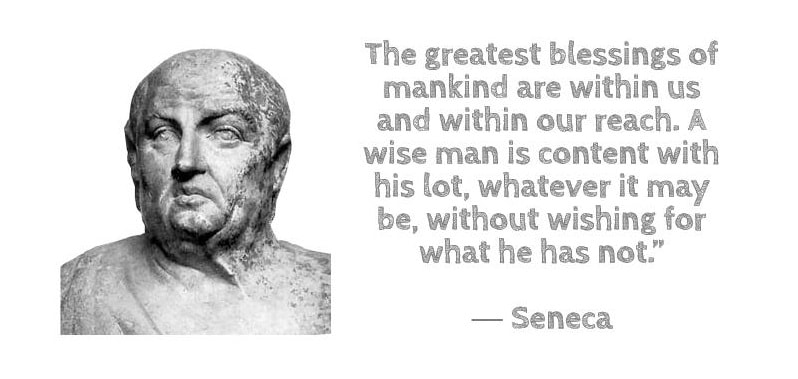Positive psychology focuses on the wellness and happiness aspects of mental health, rather than on mental illness alone. According to Dr. Robert Emmon's book, How Practicing Gratitude Can Make You Happier, psychological research shows that your “happiness quotient,” is about 50 percent dependent on a genetic set-point that you are born with. Some people are naturally more optimistic than others as a result of their set-point. An additional 10 percent of your happiness quotient is determined by external factors and circumstances in your life.
However, the other 40 percent of your happiness quotient is completely within your control, regardless of your genetic set point or external factors. Intentional happiness practices include taking time to count your blessings, displaying positive character traits such as friendliness and kindness, focusing on the present moment, and by keeping a daily gratitude journal where you express joy for all of the good things that happened to you that day.
Interestingly, this is not new information. The Stoic School of philosophy advocated a very similar perspective beginning 2400 years ago in ancient Greece. Many Stoic philosophers, including Zeno, Seneca, Epictetus, and Marcus Aurelius, developed a practical philosophy for increasing happiness and virtue, which they called The Art of Living.
Stoicism is way of life involving constant practice and introspective training, not just a set of philosophical beliefs. Stoics try to live happily and gratefully, regardless of external good fortune. They also aim to take control of their own inner natures, to know themselves, and to root out their destructive emotions in the pursuit of virtue, using a process of introspection or spiritual exercises loosely refered to as Stoic reflective practice.
What Is Happiness?
Happiness for a Stoic, is the result or byproduct of living a life of virtue and personal integrity. Cicero believed that gratitude is actually the precursor for all of the other virtues, including happiness, kindness, reason and courage. Wealth, possessions, and good fortune are not necessary for happiness, but rather they are what the Stoics called “preferred indifferents.” While the possession of preferred indifferents may add to your happiness, they are not essential for happiness in and of themselves.
The three good states of the soul in Stoicism are joy, caution, and wish. The unbalanced states of the soul are fear (contraction) and desire or appetite (unnatural expansion). Wish is described as reasonable striving with good will, kindness, and contentment. Desire or appetite, is an unreasonable striving or craving, which lacks good will, friendliness and contentment.
Craving something leads you to focus on its absence or scarcity, while reasonable striving allows you to be content with what you already have in life. You can certainly wish for more money or a certain possession, and work towards your goal. However, if you fail to obtain your goal, recognize that your happiness is not dependent on it.
In other words, you can choose to be happy right now, in the present moment, regardless of whether or not you have wealth, a certain car, job, relationship, etc. The secret to being happier, is to be grateful for what you do have, and to focus on the things that are going right in you life.
Practicing Gratitude
Emmons points out that you will not feel happy if you constantly compare yourself to others or focus on what you lack. He states that “By cultivating gratefulness, we are freed from envy over what we don't have, or who we are not.”
For example, if you feel that your body is not attractive enough, you may envy other people who you think are more attractive than you are. On the contrary, if you intentionally choose to be grateful for what you like about your body, you will not worry about comparing yourself with others. You can train yourself to feel grateful for your good health, your ability to run, to play sports, etc. This practice leads to more happiness, rather than a life of envy based on comparison with others.
Emmons also recommends keeping a daily or weekly gratitude journal, where you write about your blessings, positive experiences, and things that you feel grateful for. Studies have shown that people who keep gratitude journals are happier than people who do not.
Happiness and The Stoic Art of Living
The philosopher Seneca and the Roman Emperor Marcus Aurelius, were both fond of daily mantras and reflections, similar to the practice of keeping a gratitude journal.
If we compare the Stoic perspective to positive psychology's happiness quotient, Stoics go even further by suggesting that you can change your inherent happiness set-point through introspection or spiritual practice. A Stoic would likely argue that you actually control 90 percent of your happiness quotient, while the other 10 percent (external circumstances) is based on indifferent factors.
Stoic spiritual or introspective process, includes reflecting on your own inner nature with the goal of moral progress, and the pursuit of virtue. This practice includes ridding yourself of destructive emotions, such as fear, unhappiness, desire, and other negatives. Stoic introspective practice also has modern parallels with Jungian psychology, positive psychology, and some personal growth methods.
Unfortunately many of the specific techniques which various Stoics used for personal growth and transcending destructive emotions, were either lost or were never written down. However, I think that what we do know provides more than enough of a foundation to build on.
In keeping with the self-reliance of the Stoic spirit, I have developed my own specific methods for introspection, one of which, I'd like to share with you here. This questionnaire may be useful for you if you want to understand your own motivations, to know yourself better, or if you have no idea how to approach Stoic introspective practice.
~
This post was included in the Breath of Optimism Carnival - Staying Calm Edition!
Note: Updated January 2017. References to Cicero moved to a new post.










